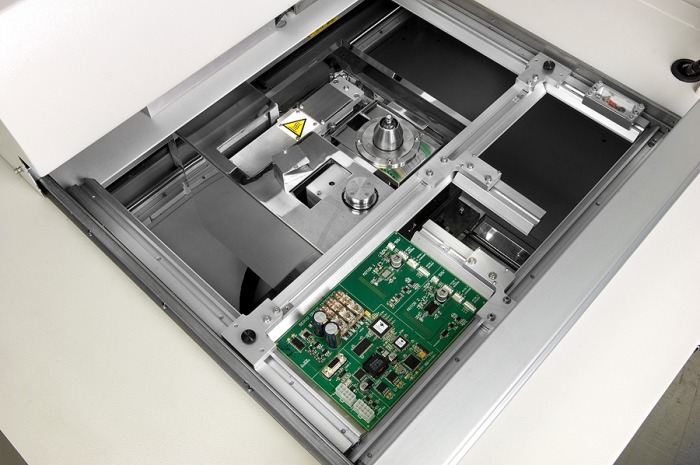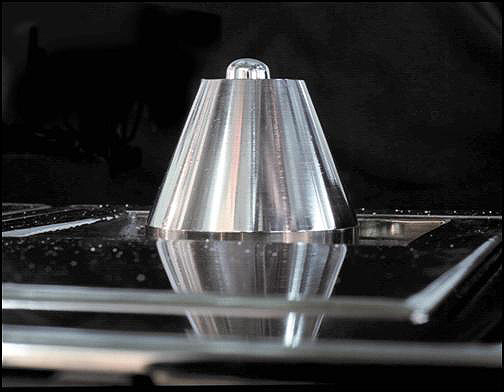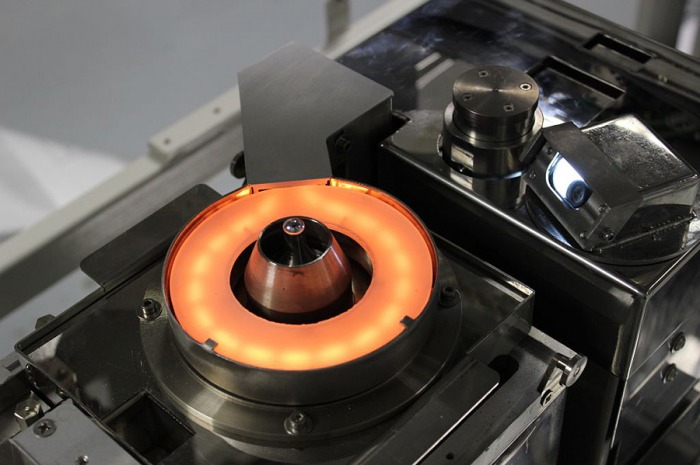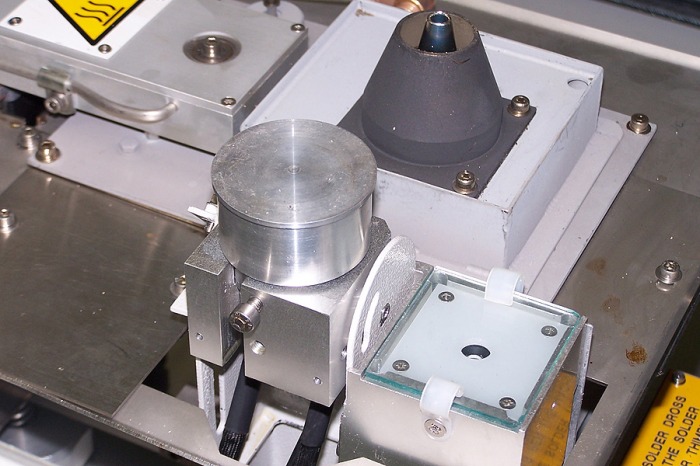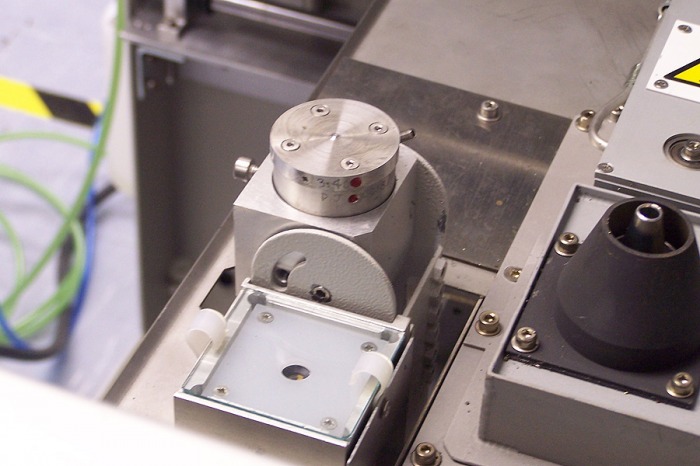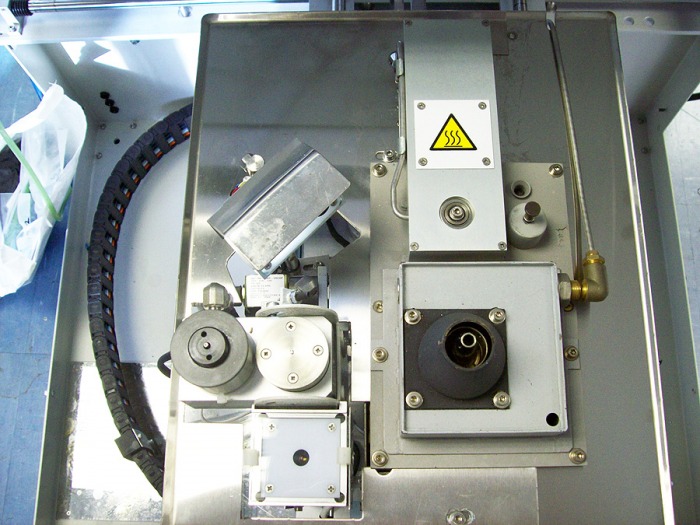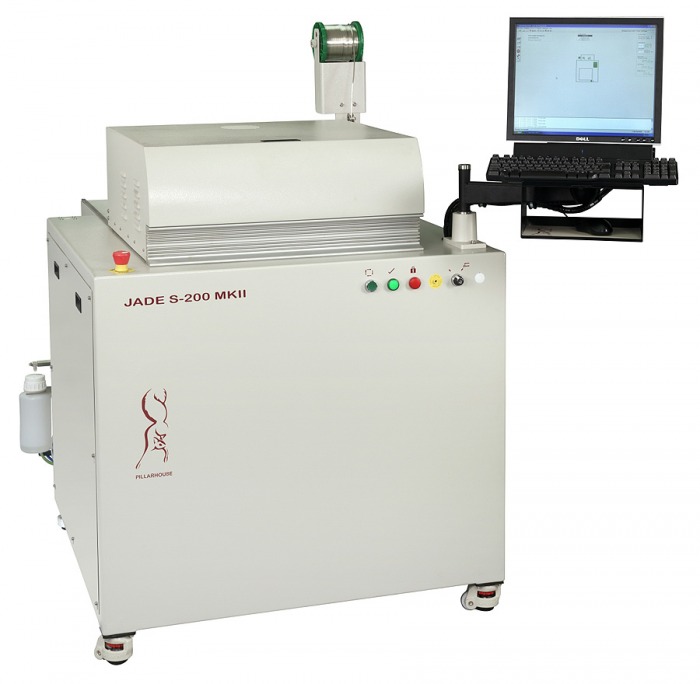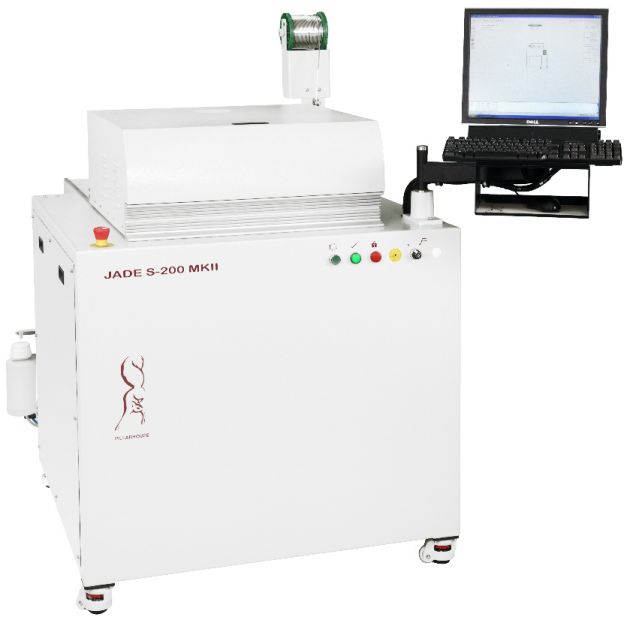
Designed to meet the needs of the small/medium batch manufacturer who requires high levels of production flexibility, the Jade MKll entry-level system offers uncompromised selective soldering quality at a very low cost.
The Jade MKII is a hand load system, incorporating a universally adjustable tooling carrier capable of accommodating PCB’s or pallets up to 457 x 508mm.
Our patented Drop-Jet design fluxer offers quick and effective flushing of the pressurised flux chamber. This helps to keep maintenance levels to a minimum whilst enabling use of higher solid content fluxes as well as water-soluble fluxes.
As part of the entry-level philosophy for this system, a low maintenance solder bath and pump mechanism has been developed which moves in three axes of movement whilst not limiting access to the PCB. Solder is applied using proven technology through our AP nozzle design or custom specialised nozzles, incorporating patented spiral solder return to bath technology offering reduced solder balling potential.
As with all Pillarhouse systems, the soldering process is enhanced by a hot Nitrogen curtain which provides an inert atmosphere. This method of soldering also assists in the prevention of oxidisation and provides a local preheat to the joint, thus reducing thermal shock to localised components.
The Jade MKII is controlled by a PC, through PillarCOMM, a Windows® based ‘Point & Click’ interface with PCB image display.
Additionally, our PillarPAD offline package allows the operator to produce programs independently from the machine using Gerber data.
Integral PC and machine mounted TFT monitor
Inerted Nitrogen system
Auto solder top-up (wire feed) & solder level detect
Drop-Jet fluxer
Set of AP style solder nozzle tips
Internal fume extraction
Colour programming camera
Solder wave height measurement and correction
Universally adjustable tooling carrier
Thermal nozzle calibration system using integrated setting camera (requires manual correction)
PillarCOMM Windows® based ‘Point & Click’ interface
Multiple level password protection
Manual fiducial correction
Lead-free compatible
Day-to-day service kit
Flux presence sensor – thermistor style
Flux spray, flow and spray & flow
Pump rpm
O2 ppm
Nitrogen flow
Top-side instant IR preheat
Closed loop temperature control – via pyrometer or thermocouple
Bottom-side IR ring heater
Bottom-side hot Nitrogen selective preheat
Automatic fiducial correction
Ultrasonic fluxing
Dual Drop-Jet / ultrasonic fluxing
Laser PCB warp correction
Micro nozzle assembly
Solder reel identification
Rapid change solder bath and pump system capability – does not include solder bath and pump
Solder bath coding – identifies correct bath for program – only suitable for use with rapid change solder bath and pump system
Encoders on X, Y and Z axis
Larger PCB handling size
Nitrogen generator
Height: 1403mm / 55” – excluding light stack
Width: 1000mm / 40“
Depth: 1351mm / 53”
Board size: 457mm x 508mm / 18”x 20” (larger PCB size available upon request)
Edge clearance: Above / below 3mm
Height clearance: Above / below 40mm nominal
Above 190mm – special application
Solder: Most commonly used solder types – including lead-free
Solder pot capacity: 8kg
Applicators: AP style – 2.5mm to 16mm dia.
Extended AP style – 2.5mm to 20mm dia.
Micro nozzle – 1.5mm to 2.5mm
Jet-Tip style – 6mm to 20mm dia.
Jet-Wave nozzle – up to 25mm width
Special dedicated nozzles available upon request
Flux: Low maintenance Drop-Jet system. Low solids (below 8%), no clean flux, pressurised and inerted system, optional water soluble system available
X, Y & Z Axis resolution: 0.1mm
Repeatability: +/- 0.05mm
Nitrogen usage: 35 litres gas/min. 5 bar pressure
Nitrogen purity: 99.995% or better
Air supply pressure: 5 bar / 72 psi
Power supplies: Single phase + PE
Voltage: 208V – 250V
Frequency: 50/60Hz
Power : 4kVA
Power with IR preheat: 6.5kVA – Top-side
8kVA – Top with bottom-side ring heater
Transport: Hand load
Tooling: Integral adjustable board guides, includes finger extensions and board clamps
Programming: PillarCOMM Windows® based ‘Point & Click’ interface

